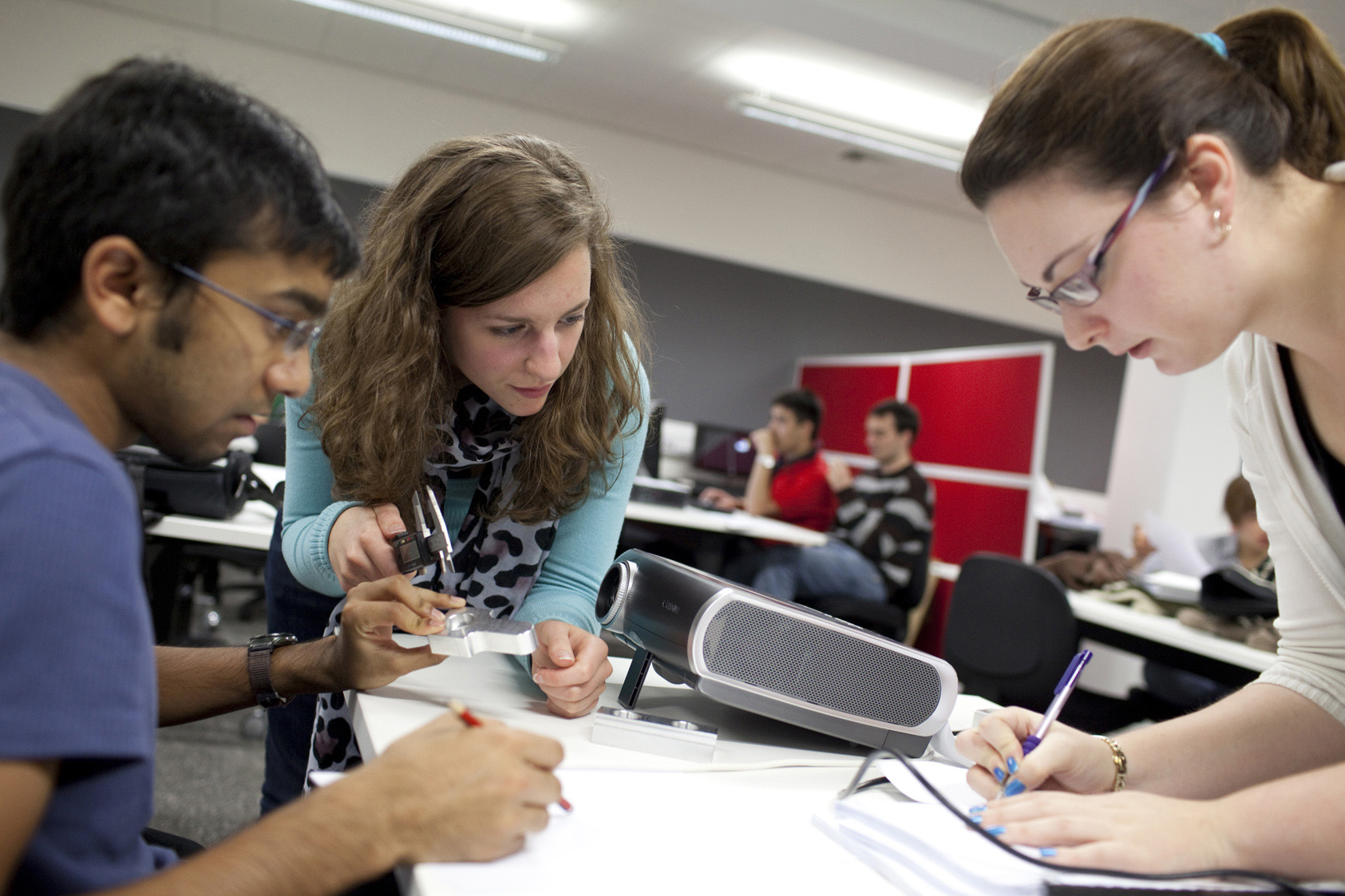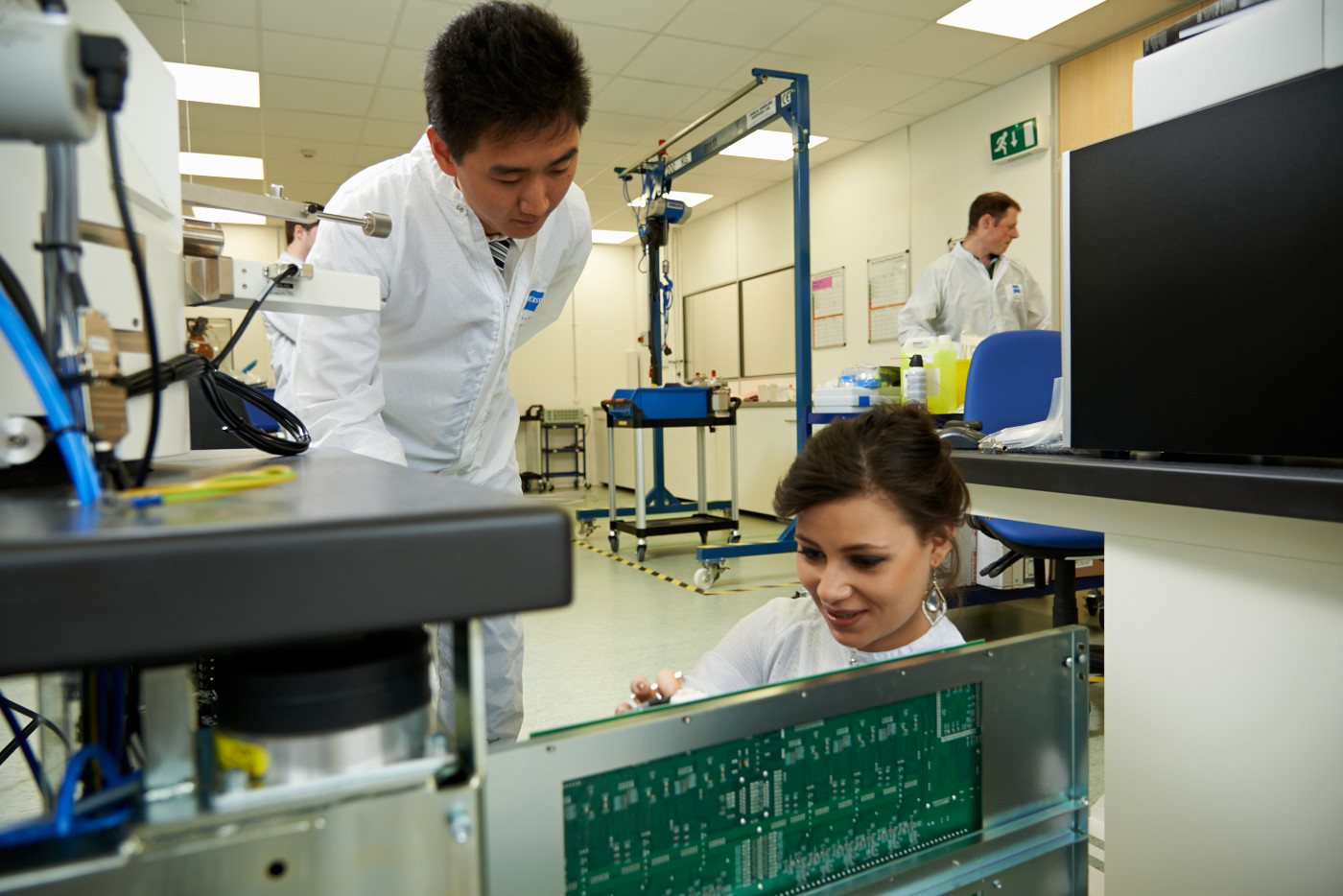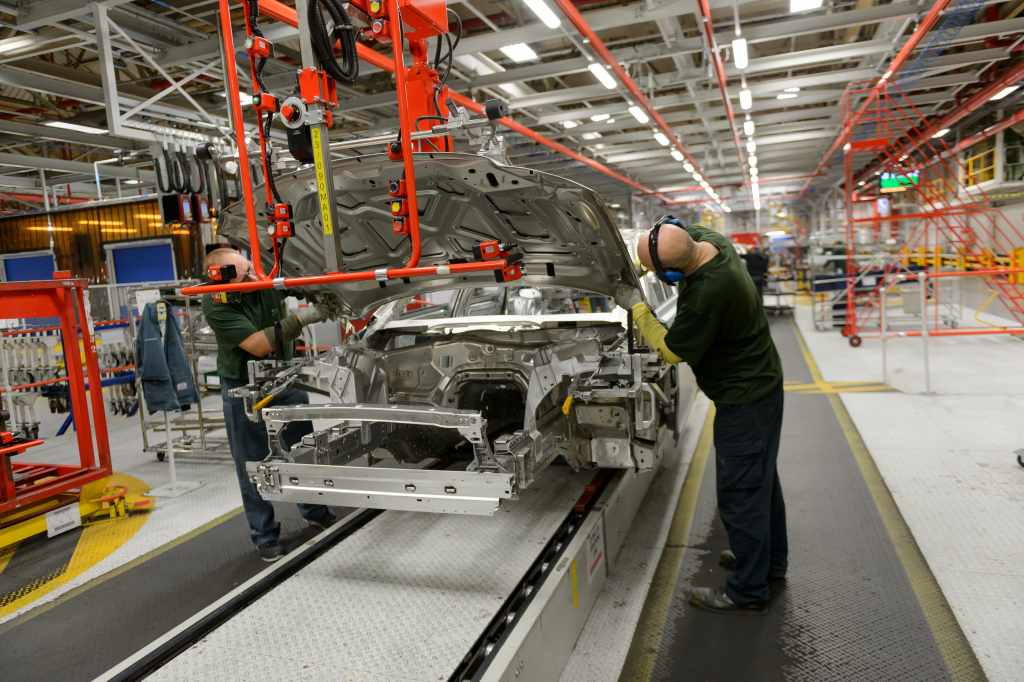Training the manufacturing leaders of the future

How should the next generation of manufacturing leaders be nurtured to provide the vision and direction needed for future success? Researcher Dr Judith Shawcross is Programme Coordinator for the Manufacturing Industry Education Research Group (MIERG) at the Institute for Manufacturing, University of Cambridge. She explains how students can build their leadership skills through in-company industrial projects as a practical elements of their education courses.
Future industrial leaders will need the ability to adapt to constantly changing circumstances and new (as yet unknown) technologies. They will need to deal confidently with uncertainty while making clear-headed decisions. They will require a practical appreciation of manufacturing capabilities and a willingness to tackle and solve problems, in combination with an innovative mindset and a willingness to take some risks. Crucially they also need to develop excellent interpersonal skills, with the ability to motivate their workforce and keep people on board.
This poses interesting challenges for how we best educate and prepare these future leaders.
How can education programmes be designed to help students acquire the ability to adapt, the confidence to innovate, and the emotional intelligence to motivate others?
Hands-on industrial projects
To build these critical leadership skills into an education programme, students need to be exposed to real industrial situations, learning how to apply theory in practice, and understanding the complexity of dealing with a variety of people and navigating company cultures.
Industrial projects, undertaken within a host company, have proven successful as a means to develop these wider capabilities. Such projects have always been a central element of the education courses at the Institute for Manufacturing (IfM): A series of two-week and four-week projects are undertaken by students in pairs – both at undergraduate and one-year taught postgraduate level.

These involve ‘live’ issues for the host company, with the benefit that everyone is invested in the outcome, and that the projects often produce in genuinely valuable results for the company. Work is supervised by the host company and the students are treated as if they are a company employees.
Skills for effectiveness at work
For the students, ‘learning by doing’ is recognised as a key strategy for developing work readiness, giving them insights into how to adapt and apply different knowledge in diverse contexts.
In terms of skill development, research from our Manufacturing Industry Education Group (MIERG) has identified that work placements help students develop a broad range of skills, from practical implementation skills for the process-driven aspects of completing the project, through to interpersonal, team-working and self-management skills.
There are some common threads identified through our research, and by students and host company contacts, where the projects had the biggest effect on skills development:
1. Dealing with real-world complexity
Academic courses such as Engineering tend to cover neatly defined, bounded problems with clear objectives and sufficient data – think of exam questions! Workplaces rarely work in the same way. Problems are typically complex, and often have multiple goals that are difficult to define. These will usually have non-engineering success standards and constraints. So graduates need to make a significant adjustment, requiring personal flexibility and adaptability.
Postgraduate student Leon Pietschmann from the IfM’s one-year Industrial Systems, Manufacture and Management (ISMM) course comments: “My first project [of four] felt overwhelming to start with, but I gained a more structured approach as I did more projects. This involved learning to cope with uncertainty, and experience of working out how to focus on getting results in unfamiliar situations.”
Fellow student Rob Stocker reflects on a two-week project with bathroom specialist Kohler Mira, at the company’s Mira Showers plant in Cheltenham:
“We had two weeks to design a new sub-assembly layout,” he explains. “Personally the biggest thing I learned was how to focus quickly on the best route to take. We explored the problem and identified lots of different possibilities, with a huge volume of data generated, but had to narrow these down. We learned how to ask really good, focused questions to help us define the scope more tightly and refine down to the most valuable solution. We also needed to navigate resistance from floor managers and work with them to find solutions they were happy to work with.”
2. Influencing and motivating stakeholders
Student Kiril Krastev worked on a two-week project at NSG Pilkington. He says: “We had to learn how to plan our interactions with different people. For example we realised the value of seeking different viewpoints and inputs to cross-check what we were doing, so that what we presented was more reliable and not just one person’s opinion. We often had very limited time with particular specialists, so we had to make sure we were not afraid to ask all the questions we needed answering; this required planning and also confidence.”
Anastasia Ilina reflects across her four projects: “It was important for us that we gathered hard data to put in front of people, as the most effective way to influence decisions. It then becomes factual rather than about opinions. We also spent time in one-to-one conversations with different company managers, as we found this was a helpful way to build stronger relationships. Overall it gave me much greater confidence to talk with and challenge people at all levels in a company.”

3. Professionalism
Students find themselves needing to make a significant adjustment to their sense-of-self as well as understanding the expectations that others may have of them when they move into a professional sphere of work.
Through their years in education, they will usually have been in a controlled environment, been accustomed to working mostly with people their own age, and had a set of clear expectations focused on a single outcome (passing an exam or course). Switching to a professional environment requires a shift in self-perception.
Student Kiril Krastev says: “We had some good tips as part of our preparation for the project, such as emphasising confidentiality and professionalism. This was important for helping us make the transition from an educational setting to a work environment.”
“We had to adapt quickly to a corporate environment,” agrees Leon Pietschmann. “The host company supervisor has invited you in and spends time with you, but wants you to produce a result. You have to learn how to navigate the environment to get the information you need and keep people on side.”
4. Results-driven project management
The projects involve scoping and researching the problem, analysing the issues, developing ideas for improvement, and putting together a business case with recommendations for the company. The final deliverable of the project is a presentation to senior management.
Anastasia Ilina had a two-week project with tea manufacturer Twinings. She explains:
“We were working on a quality control issue – we had to identify the root cause of a problem, replicate it and work on improving the algorithms for the machinery. We had to collect data from different sources, including different people and machines, as well as contacting suppliers, then make a plan for how to address it. We managed to get agreement on proposed changes and implement a pilot new process within our two-week project, with results to show that what we’d done was correct.
5. Working in a team
ISMM student Leon Pietschmann explains he found the interpersonal skills required for the project a steep learning curve: “Communication of a lot of information needs to happen. We had three people in our team, so this was complex, and we had to find a way to agree on one solution. We had a few intense discussions but we got better at resolving these productively. It was useful to be in a team as we could focus on different areas and bring different knowledge together to complement each other’s expertise.”
Company perspectives
 Tea company Twinings has hosted several teams of ISMM students working on in-company projects. Chris Preece, Operations Manager, says:
Tea company Twinings has hosted several teams of ISMM students working on in-company projects. Chris Preece, Operations Manager, says:
“We’re pleased to be able to provide an industrial environment for students to apply their learning in practice. But also there’s genuine value for us from commercial perspective too – we benefit from getting very high calibre young people in to solve real problems for us. We have learned as much from them as they have from us, and we’ve had tangible improvements from every project.”
He adds: “We have really stretched students with challenging problems to get their teeth into, and it’s remarkable what they achieve in two weeks. They have had to get under the skin of the problem very quickly, pinpointing the key points to focus on. The real learning point is to seek simplicity on the far side of complexity, processing the detail to reach an elegant solution. There is also real skill needed to present the solution and make the business case persuasively to different stakeholders, keeping a variety of people on board – the students have been very impressive at doing this and we are still using successfully using solutions they identified during projects.”
 Joe McNamara from Jaguar Land Rover has hosted several groups of IfM’s undergraduate students on placements. He comments:
Joe McNamara from Jaguar Land Rover has hosted several groups of IfM’s undergraduate students on placements. He comments:
“I’m always impressed by the way the students arrive and get stuck in straight away. They already have good interpersonal skills, but they get a chance to hone those and work out the best way to approach different types of people to get the best response. They also have to realise that in the real world the information they need isn’t quite at their fingertips.
“Real industrial situations are more complicated than the way they might be presented in a classroom – it can be hard to identify the ‘best’ solution when you have to deal with timescales, differing opinions, budgets and other constraints.
“There is a learning opportunity for our people as well as for the students,” says McNamara. “I see light bulbs going off for our people when students bring new ideas into the room. All the departments are very ready and willing to host students again because they really gain value from it.”
“One example of a recent project involved identifying and making improvements to software test preparation and procedures. The project results were excellent, and were very different than expected - highlighting issues within the software test procedures rather than physical issues with vehicles. The project was well received by JLR with improved procedures adopted, with one test showing 95% reduction in key failures and an improved throughput of 20%.”
Moving into a career
Long-term benefits of the experience gained during industry projects can be seen as students move into their careers. Ed Holt graduated from the IfM’s Manufacturing Engineering Tripos course in 2017, and went on to work at Proctor & Gamble. Industrial projects undertaken on the course were beneficial for the transition to employment, he explains:
“The experience of talking to a wide variety of people in different companies, and having to deal with a range of roles, backgrounds and opinions, certainly put me in good stead for the start of my career in manufacturing. You have to get used to hitting the ground running, quickly identifying who to talk to in an organisation, and distilling a huge amount of information down to the relevant essentials.”
“I was also aware of the value of being able to bring in an external perspective, and look at things fresh. I have tried very hard to keep this critical appraisal approach as I’ve entered into my career, trying regularly to step out of day-to-day firefighting mode and look more questioningly at how and why we are doing things a certain way.”
Dr Judith Shawcross is Programme Coordinator for the Manufacturing Industry Education Research Group (MIERG) at the Institute for Manufacturing, University of Cambridge. The group undertakes research across a wide range of themes relating to educational issues that affect the manufacturing industry.
Find out more about IfM’s manufacturing education programmes at https://www.ifm.eng.cam.ac.uk/education/









